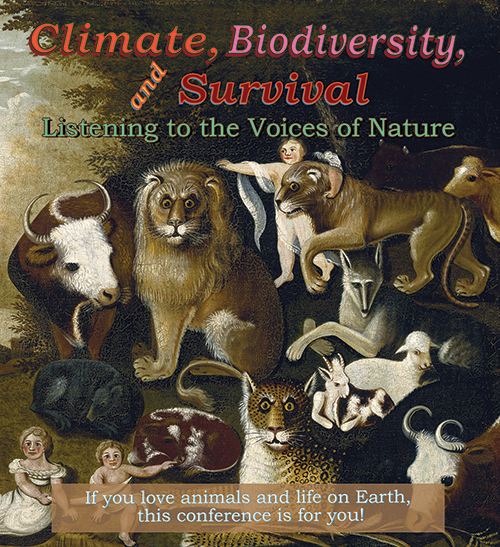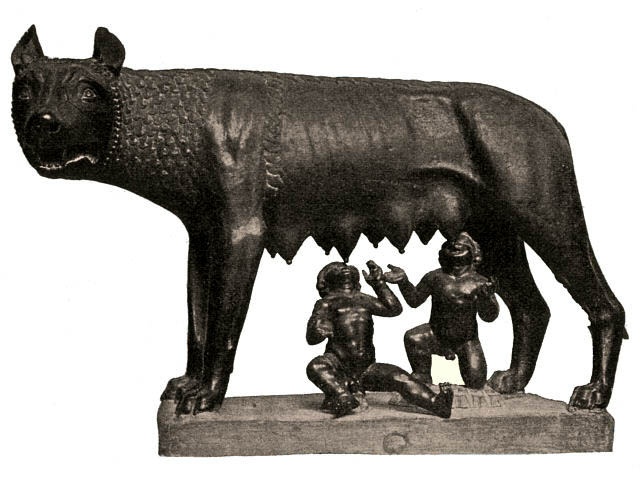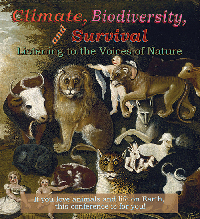Listening to the Voices of Nature
– Conference Home –
November 17-18, 2018
Conference Home Speakers Program Sponsors and Partners
“The event was splendid. I learned more in two days than I’ve learned in the last 20 years, and I was thrilled to be included.” Elizabeth Marshall Thomas
“I loved the eclectic nature of the overall program, which at the same time was faithful to its theme. Well done!” Ralph Baker
“The speakers were amazing, top-notch science combined with bringing their specialties into the larger context, and their personal journeys into spiritual wholistic understanding of the world. Length of talks was good. Nice mix with art, poetry, a little music (more!) Workshops! Dialogue! Rice milk!” Walter Kittredge
“Bio4climate practices what it preaches in terms of creating a culturally diverse group to discuss bio-diversity. Presentations went from “soup to nuts” engaging biology, mathematics, psychology, religion, etc. I appreciated the seeds for cross pollination that were planted.” Rev. Dele
“Outstanding speakers who conveyed their Passion, Play, and Purpose in such accessible and scholarly ways. The conference offered many avenues for action to restore, even rewild, the environment, from locally to globally.” Christina Nicholson
“Thanks for all the tremendous amount of work you put into the Conference. My considerable efforts to get there were well rewarded.” Lois Robin
“I think this whole conference topic is a capstone in the evolution of Bio4Climate’s conference themes. It presents what is arguably the most sophisticated aspect of our organizational mission: teaching people to acknowledge, respect, and embrace the voices of nature speaking to us about the interconnections and interdependence of species, of biotic and abiotic components of ecosystems, and of ecosystems and climate. Truly eye opening to see how symbiotic relationships and patterns repeat over and over and over again in nature.” Sharon McGregor
 Painting: The Peaceable Kingdom, Edward Hicks, 1834
Painting: The Peaceable Kingdom, Edward Hicks, 1834
November 17-18, 2018
Saturday, 9 a.m. – 6 p.m.
Sunday, 9 a.m. – 5 p.m.
Harvard University*
Geological Lecture Hall
24 Oxford Street, Cambridge, MA
Tickets:
Regular, $200
Early Bird. $150 (until 11/8)
Low Budget, $50
Student, $15
Coffee, tea and snacks will be available throughout the day.
Volunteer opportunities available too – please contact staff@bio4climate.org
*Biodiversity for a Livable Climate is not affiliated with Harvard University, nor is this conference a Harvard University program or activity.
A conference about us civilized humans falling in love with
the wonders and beauties of the natural world once again.
For what we love, we protect.
We now have a rapidly growing collection of science that demonstrates the abilities – even intelligence – of creatures across the kingdoms of life. We’ll review fascinating scientific research and everyday experiences that must give us pause. Such investigations indicate how brilliant the being that some have called Gaia – Planet Earth – collectively is. It’s not just about animals either – it’s also about fungi, plants and microbes, and how we humans are just one small part of this great symphony of intelligent life.
Indigenous cultures have known this forever, the rest of us have some catching up to do. Fortunately we are finally leaving behind us the scientific curse of “anthropomorphism,” the idea that attributing any form of intelligence to non-human creatures was really just a matter of over-using our imaginations.
You may ask, “What does pan-species intelligence have to do with climate and biodiversity?” In keeping with our striving towards systems thinking we would say “a lot”! Can we let go of our hubris, our belief that we are the chosen ones, and realize that compassion and collaboration, far more than competition, are the essence of life on Earth? If we can, perhaps we will finally become the stewards – and the stewarded – that we can and should be.
===
We promise that you will be astonished and delighted, as have we, at recent as well as ancient insights about the creatures we share Planet Earth with. They express feelings and intelligence that we can barely understand, they lead full and interesting lives, and we rely on their diverse and varied presence for our own survival. They’re talking to us, and this will be a weekend where we learn more about how to listen – and to marvel. Here’s a sample of what we’ll be pondering (Scientific American, The Mind of the Predator, by Gay Bradshaw).
Conference Home Speakers Program Sponsors and Partners


